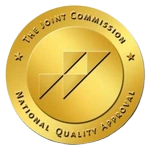Navigating the challenges of mental health and substance use disorders can feel overwhelming, especially when they overlap. At Serenity Ranch Recovery, we understand that a dual diagnosis—when someone faces both a mental health disorder and a substance use disorder—requires a compassionate, integrated approach. Dual diagnosis treatment centers in Kentucky, like ours, offer specialized care to address these interconnected conditions, guiding individuals toward lasting recovery through tailored treatment.
What is Dual Diagnosis?
Dual diagnosis, also known as co-occurring disorders, refers to the presence of both a mental health disorder and a substance use disorder. This combination often creates a cycle where one condition worsens the other, such as when someone with depression uses alcohol to cope, which in turn deepens their depression. Effective treatment for dual diagnosis involves addressing both disorders simultaneously. Our dual diagnosis treatment centers specialize in breaking this cycle through comprehensive care.
Why Is Understanding Dual Diagnosis Important?
Understanding dual diagnosis is crucial because it’s not just about treating two separate issues—it’s about recognizing how they interact. Traditional treatments focusing solely on substance abuse or mental health often fall short for those with co-occurring disorders. The interplay between these conditions requires an integrated approach, which is why our treatment is designed to address both disorders holistically. Without this focus, recovery may be incomplete, increasing relapse risk. Our residential treatment for dual diagnosis ensures comprehensive care tailored to each individual’s needs.

Contact Us
What Are The Common Dual Diagnosis Conditions We Treat?
At Serenity Ranch Recovery, we specialize in treating a range of dual diagnosis conditions, addressing the unique challenges of each combination with expertise and compassion. Below are some of the common co-occurring disorders we treat in our treatment centers:
-
Alcohol Addiction and Depression
Alcohol addiction often coexists with depression, creating a cycle where individuals use alcohol to self-medicate depressive symptoms, only to worsen their mental health. Our treatment programs use evidence-based therapies like CBT to address both conditions, helping clients break this cycle and build healthier coping mechanisms.
-
Fentanyl Addiction with Anxiety and Depression
Fentanyl addiction paired with anxiety and depression presents significant challenges due to the drug’s potency and the emotional toll of these mental health disorders. Our residential treatment combines medical detox, therapy, and holistic approaches to manage withdrawal and stabilize mood, fostering lasting recovery.
-
Methamphetamine Addiction and Bipolar Disorder
Methamphetamine addiction can exacerbate the mood swings of bipolar disorder, making stabilization complex. Our treatment integrates medication management, therapy, and support groups to address both the addiction and bipolar symptoms, promoting balance and sobriety.
-
Marijuana Addiction with Anxiety and Depression
While often perceived as less harmful, marijuana addiction can intensify anxiety and depression, creating a challenging cycle. Our dual diagnosis inpatient rehab programs offer tailored therapies to address marijuana dependence and co-occurring mental health issues, supporting clients in achieving emotional stability.
-
Benzodiazepine Addiction and PTSD-Related Anxiety
Benzodiazepine addiction, often linked to PTSD-related anxiety, requires careful management due to the risk of dependency and withdrawal complications. Our treatment includes trauma-focused therapy and medical oversight to safely address both conditions, helping clients heal from trauma and addiction.
-
Cocaine Addiction and Bipolar Disorder
Cocaine addiction paired with bipolar disorder can intensify manic and depressive episodes, complicating recovery. Our centers in Kentucky provide integrated care, combining therapy and medication management to stabilize mood and support sobriety.

How do We Approach Dual Diagnosis?
Evidence-based Therapy
We use evidence-based therapies like cognitive-behavioral therapy (CBT) to address both mental health and substance use disorders. CBT helps individuals identify and change negative thought patterns contributing to their conditions. For those dealing with dual diagnosis, CBT can be instrumental in managing symptoms and developing healthier coping strategies.
Holistic Therapy
Holistic therapies complement our traditional therapies by focusing on the whole person. We incorporate yoga, meditation, and nutrition counseling into our residential treatment for dual diagnosis. These practices reduce stress, enhance well-being, and support long-term sobriety.
Trauma Therapy
Trauma often underlies dual diagnosis, impacting both mental health and substance use. Our trauma therapy services help clients help individuals process and heal from past traumas, reducing their influence on current behavior and mental health. This care is integral to our treatment, providing tools to address the root causes of co-occurring disorders making our dual diagnosis treatment centers in Kentucky a haven for healing.
12-Steps/Life Skills
We integrate the 12-step program and life skills training into our treatment programs. The 12-step model offers a supportive community, while life skills training equips clients with practical tools for daily life and sobriety. These elements strengthen our treatment, fostering resilience and independence.
Individual and Family Therapy
Individual therapy allows clients to work one-on-one with a therapist to explore personal issues related to their dual diagnosis. Family therapy, a key part of our treatment, rebuilds relationships and creates a supportive recovery environment. These sessions are vital for long-term success in dual diagnosis inpatient rehab.
What Is The Importance of Integrated Treatment?
Integrated treatment is essential for co-occurring disorders. Treating mental health and substance use disorders separately can lead to incomplete recovery and higher relapse risk. Treatment centers like Serenity Ranch Recovery, prioritize coordinated care that addresses the interplay between these conditions. Our approach includes:
-
Coordinated Care: Aligning mental health and substance use treatments to address their complex interactions.
-
Comprehensive Assessment: Conducting thorough evaluations on how mental health and substance use impact each other.
-
Personalized Treatment Plans: Tailoring plans to each individual’s unique needs.
-
Continuous Support: Offering ongoing counseling and support to maintain progress and prevent relapse.
How Can You Overcome Challenges in Dual Diagnosis Treatment?
Diagnosis Complexity
Identifying and accurately diagnosing dual diagnosis is complex, as symptoms of one disorder can mask or mimic the other. Our dual diagnosis inpatient rehab programs rely on thorough evaluations, including assessments and comprehensive interviews, and sometimes multiple diagnostic tests to distinguish between the overlapping symptoms of each disorder. This ensures precise diagnoses and effective treatment plans.
Symptom Management
Managing symptoms of co-occurring disorders is challenging, as they often influence each other. Our dual diagnosis treatment combines customized therapies, including medications and therapeutic approaches, to address this interplay between the conditions and support clients’ recovery.
Relapse Prevention
This is another critical challenge in dual diagnosis treatment. Individuals with dual diagnoses face a higher relapse risk. Our residential treatment for dual diagnosis includes ongoing support through counseling, support groups, and follow-ups to reinforce coping strategies and maintain progress.
At Serenity Ranch Recovery, we are committed to overcoming these challenges by providing expert care and support. Our team is trained to handle the intricacies of dual diagnosis and is dedicated to helping individuals achieve a balanced and lasting recovery.
How Do I Find the Right Dual Diagnosis Treatment Center?
Choosing the right facility is critical for effective dual diagnosis care. When exploring dual diagnosis treatment centers in Kentucky, consider:
-
Experience and Expertise: Ensure the center has a proven track record in treating co-occurring disorders and a team of professionals skilled in managing dual diagnosis.
-
Comprehensive Services: Look for programs offering evidence-based and holistic therapies and support systems.
-
Personalized Care: The center should provide tailored treatment plans tailored to the specific needs of each individual.
Serenity Ranch Recovery is a leading choice among dual diagnosis treatment centers in Kentucky, offering compassionate, integrated care. For those in nearby states, our partner facility, Serenity Ranch Recovery, provides exceptional treatment in Tennessee.
Your Path to Healing at Dual Diagnosis Treatment Centers in Kentucky
If you or someone close to you is dealing with a dual diagnosis, finding help from a specialized treatment center is a vital step toward healing. Serenity Ranch Recovery provides a compassionate and thorough approach to dual diagnosis, ensuring effective treatment for both mental health and substance use disorders. By choosing us, you are choosing a path toward healing that addresses all aspects of your well-being. Our team is here to support you every step of the way, from initial assessment to ongoing recovery.
Ready to take the first step? Contact us today. Dual diagnosis treatment centers in Kentucky, such as Serenity Ranch Recovery, are prepared to offer the care and support necessary for a successful recovery journey. Remember, you’re not alone—help is available, and we are here to help you through it.
Your Insurance May Cover The Cost Of Detox and Rehab
Lets Start Your Mental Health Recovery Journey Today
Redefining Healing: Personalized Care in a Comfort-First Environment

State-Of-The-Art Facility

Luxury Bedrooms

Dedicated Private Chef

Fun and Games

Clinician & Medical Owned & Operated

Family Therapy Sessions

Weekly Outings

Twice‑Weekly Individual Therapy

Small Groups, Big Recovery



Why Choose Serenity Ranch?
-
Experienced and Compassionate Staff: Our team consists of experienced professionals dedicated to helping individuals achieve lasting recovery. We are committed to providing compassionate, non-judgmental care.
-
Tailored Treatment Plans: We understand that each person’s journey to recovery is unique. Our tailored treatment plans ensure that every client receives the specific care they need to succeed.
-
Safe and Supportive Environment: Serenity Ranch provides a safe, supportive environment where clients can focus on their recovery. Our facilities are designed to promote healing and comfort, allowing individuals to feel at ease as they work towards sobriety.
Get Family Support Now
Supporting Families Through Recovery
We understand addiction affects the whole family. Our comprehensive family program helps rebuild trust and restore relationships.
Weekly Family Therapy Sessions
Educational Workshops
Support Groups
Communication Skills Training
Get Family Support Now


